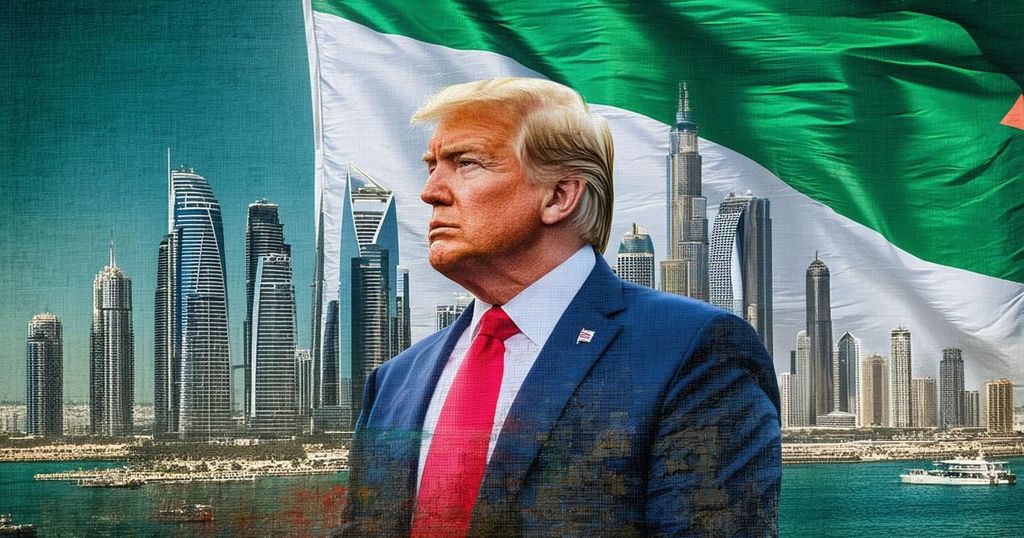Gulf States’ Preference for Trump: A Strategic Calculation
Saudi Arabia and the UAE are inclined to support Donald Trump’s comeback in the 2024 U.S. presidential election, viewing his previous administration’s policies as more conducive to their regional ambitions compared to the anticipated stricter approach under Vice President Kamala Harris. Their strategic interests revolve around arms deals, security commitments, and navigating tensions with Iran.
As tensions rise in the Middle East due to Israel’s war against Hamas and related conflicts, Gulf states like Saudi Arabia and the United Arab Emirates (UAE) are strategically positioning themselves ahead of the upcoming U.S. presidential election. Rather than endorsing stability through Democratic nominee Vice President Kamala Harris, who is expected to adopt a stricter foreign policy than her predecessor, these nations are likely to favor the return of former President Donald Trump. Trump’s transactional diplomacy and his previous administration’s unqualified support significantly enhanced the regional influence of these states. Under Trump, the Gulf states benefited from extensive U.S. arms deals and a hardline stance against Iran, which marked a stark contrast to the anticipated diplomatic engagement that a Harris presidency may entail. Kamala Harris has indicated she would seek re-engagement with Iran and revive aspects of the previous administration’s foreign policy under Barack Obama, positioning herself against the interests of Saudi Arabia and the UAE, which perceive Iran as a principal threat. Both states wish to take advantage of Trump’s potential return to solidify their geopolitical ambitions further, including arms deals and possible nuclear cooperation, despite the complexities surrounding Iran’s nuclear aspirations. Under past agreements facilitated by Trump, Saudi Arabia sought to establish a security pact that linked normalization with Israel to progress facilitating Palestinian statehood—a process now complicated by ongoing conflicts. The UAE additionally seeks to maintain its competitive edge over regional neighbors, benefiting from its previous agreements with Israel under the Abraham Accords and pursuing autonomous military actions in various conflict zones. However, there are concerns regarding how a potential second term of Trump may complicate relations between the UAE and Saudi Arabia, as both contend for increased U.S. support while navigating their regional rivalries.
The geopolitical landscape of the Gulf region has been particularly volatile as Israel battles Hamas in Gaza, which induces a sense of urgency among the Gulf states to secure favorable U.S. foreign policy. Saudi Arabia and the UAE, being two dominant regional powers, see the forthcoming U.S. election as a critical juncture. The expectation of a Harris presidency, which may involve a return to a diplomatic approach prioritizing negotiations with Iran and a reevaluation of assistance to Saudi-led operations in Yemen, contrasts sharply with Trump’s previous support, characterized by its military and transactional nature.
In summary, both Saudi Arabia and the UAE are likely to favor former President Trump’s candidacy in the upcoming election due to his proven support for their geopolitical goals and transactional approach to diplomacy. They perceive a Harris presidency as potentially detrimental to their interests, particularly in terms of regional security and arms transactions. The Gulf states’ strategic calculations underscore their desire to enhance their influence while navigating the complexities inherent in their relations with both the United States and Iran.
Original Source: foreignpolicy.com








Post Comment